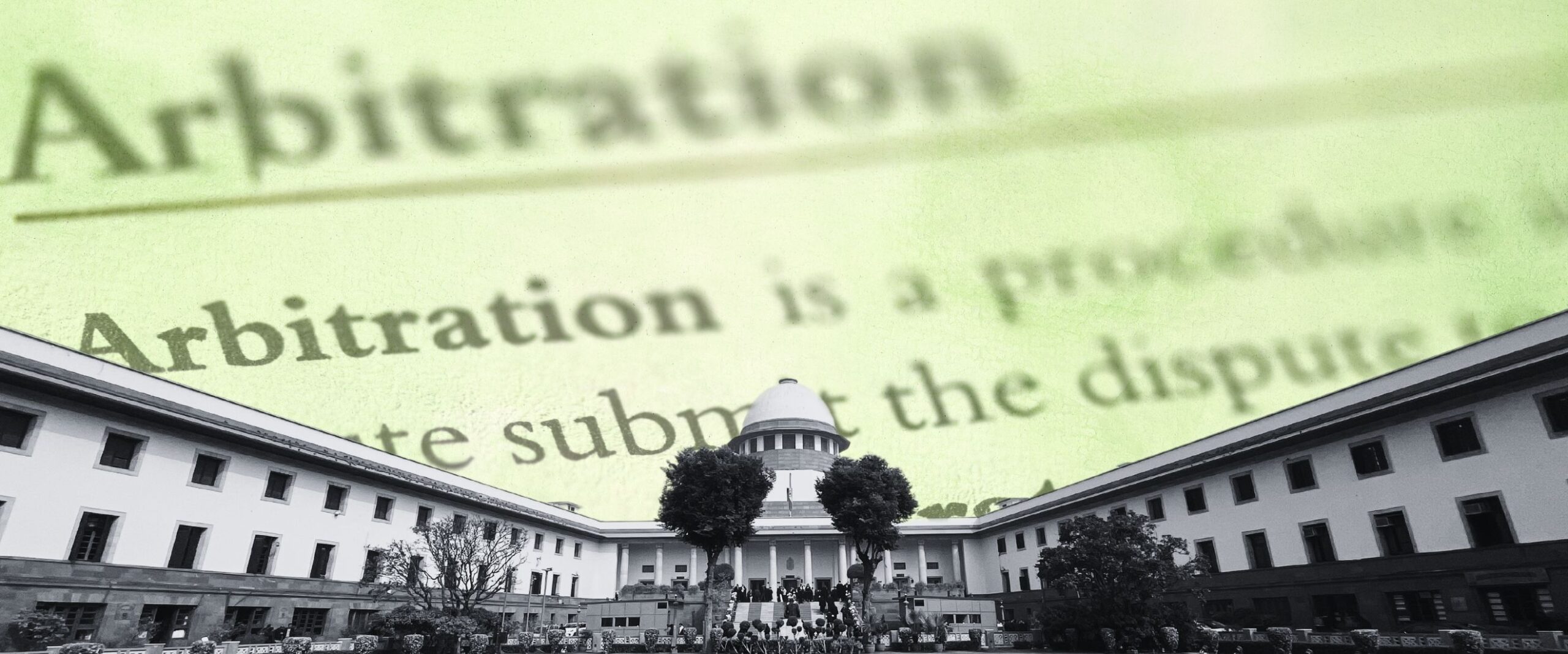Analysis
Supreme Court to decide validity of unilateral nominations to panel of arbitrators
The decision of the Court will also clarify if a person who cannot be an arbitrator is eligible to appoint one

Tomorrow, a five-judge Constitution Bench of the Supreme Court will deliver the judgement on whether a person ineligible to be an arbitrator can appoint one. The Court will also clarify if one party to an arbitration agreement can unilaterally appoint the panel of arbitrators. The judgement could have a significant impact on the way private parties contract with government entities.
The bench led by Chief Justice D.Y. Chandrachud heard arguments in the case for three days in August this year.
What is the case about?
An arbitral agreement in the General Conditions of Contract (GCC) between the Central Organisation for Railway Electrification (CORE) and M/s ECI-SPIC-SMO-MCML (a joint venture), outlined a process for the formation of a tribunal in case of a dispute:
- CORE would nominate a panel of four individuals.
- The JV would then choose two names from this panel, and
- The General Manager of CORE would select the third member.
When disputes arose, CORE nominated four panellists according to the GCC. However, instead of choosing two of them, the joint venture approached the Allahabad High Court to appoint an arbitrator under Section 11 of the Arbitration Act.
The Allahabad High Court had appointed an arbitrator, accepting the joint venture’s argument that the panel of arbitrators appointed by CORE comprised of retired railway officers who were ineligible to be arbitrators. The High Court held that their power to appoint an arbitrator was independent of the arbitral agreement.
On appeal, however, a three-judge bench of the Supreme Court set aside the High Court’s appointment, reasoning that the selection did not adhere to the GCC agreed upon by both parties in the case.
What are the key issues in the case?
According to Section 12(5) read with the Seventh Schedule of the Arbitration Act, 1996, a General Manager is ineligible to serve as an arbitrator in a dispute, due to an apparent conflict of interest. So there were two questions before the Court:
- Whether a person who themselves cannot be an arbitrator (the General Manager) can appoint one;
- Whether it is permissible for the panel of arbitrators to be nominated unilaterally
In Central Organisation for Railway Electrification (CORE) v M/s ECI-SPIC-SMO-MCML (JV) (2019), the Supreme Court had answered both questions in the affirmative. The judges felt the power of appointment was balanced evenly between the parties. It held that since the joint venture had the authority to select two names from the panel, CORE’s power to nominate an arbitrator unilaterally was effectively counterbalanced by the joint venture’s choices.
The current reference emerges from Union of India v M/s. Tantia Constructions Ltd. (2021), in which another three-judge bench disagreed with the reasoning in Central Organisation.
What was argued in Court?
Counsels for private contractors argued that the unilateral appointment of arbitral panels was contrary to the principle of equality enshrined under the Arbitration Act and contravened public policy.
They also claimed that a person cannot do indirectly what they cannot do directly—to ensure fairness, a person who cannot be an arbitrator themselves could not appoint one.
Given the volume of contracting they undertake, public sector undertakings (PSUs) typically put together a list of people from which an arbitral tribunal must be selected. Counsel for PSUs contended that if both parties agreed that one party could put together the list from which arbitrators must be selected, there would be no need to question the panel.
Further, they also pointed out that mere nomination to an arbitral panel does not mean selection to a tribunal—that choice still existed with the parties based on the arbitral agreement.
PSUs also contended that if the Arbitration Act intended that an ineligible person could not appoint an arbitrator, the Act would have made that clear under Section 12(5).
What could be the impact?
The judgement of the Court could have an impact on the scope of party autonomy under the Arbitration Act. The decision could also have cascading effects on existing arbitral agreements between PSUs and private parties.
During the hearings, the bench had cautioned that principles of equity and public policy—which are relevant in administrative law—could not be extended to private law matters such as arbitration. The Court’s decision will likely clarify the applicability of public law principles in arbitration law.